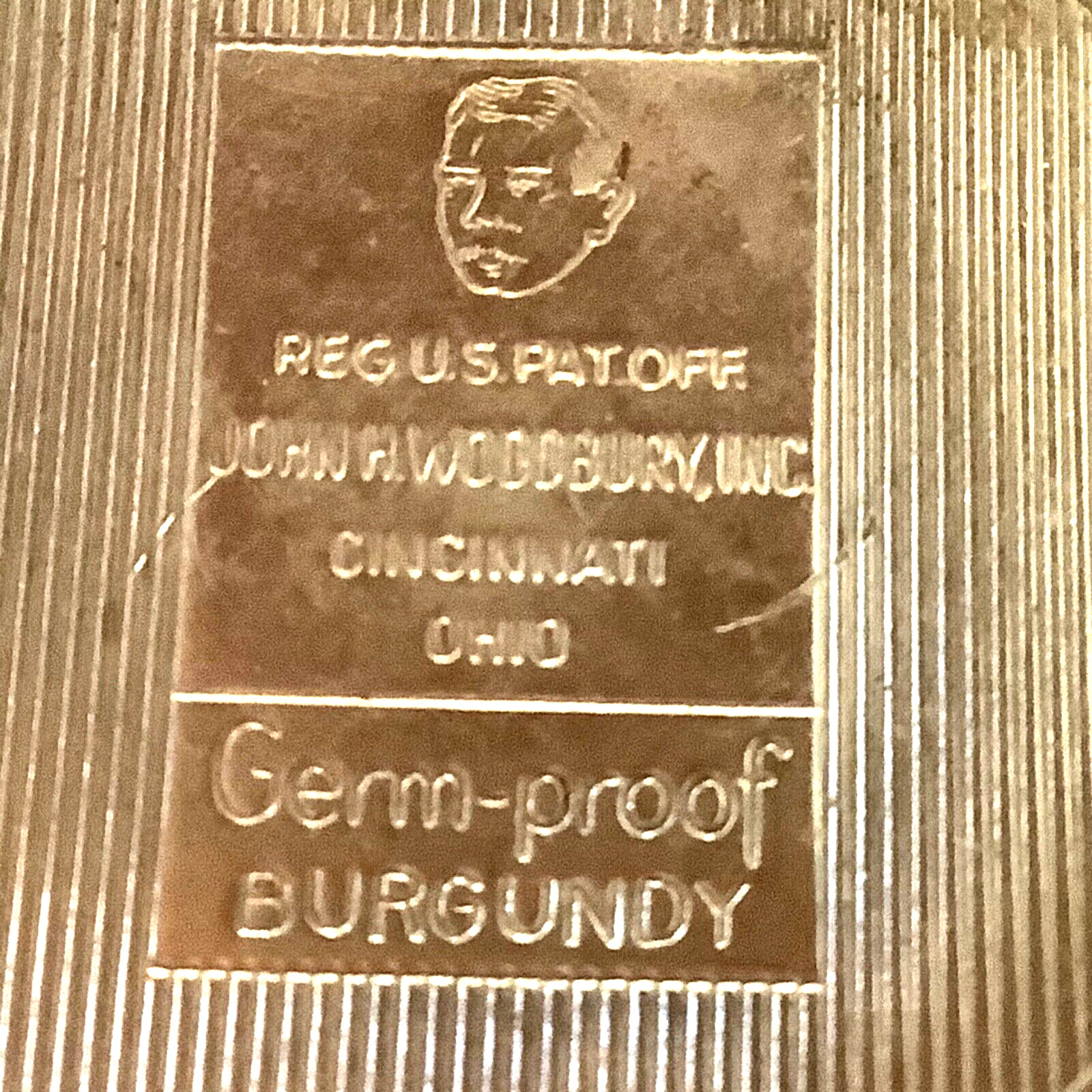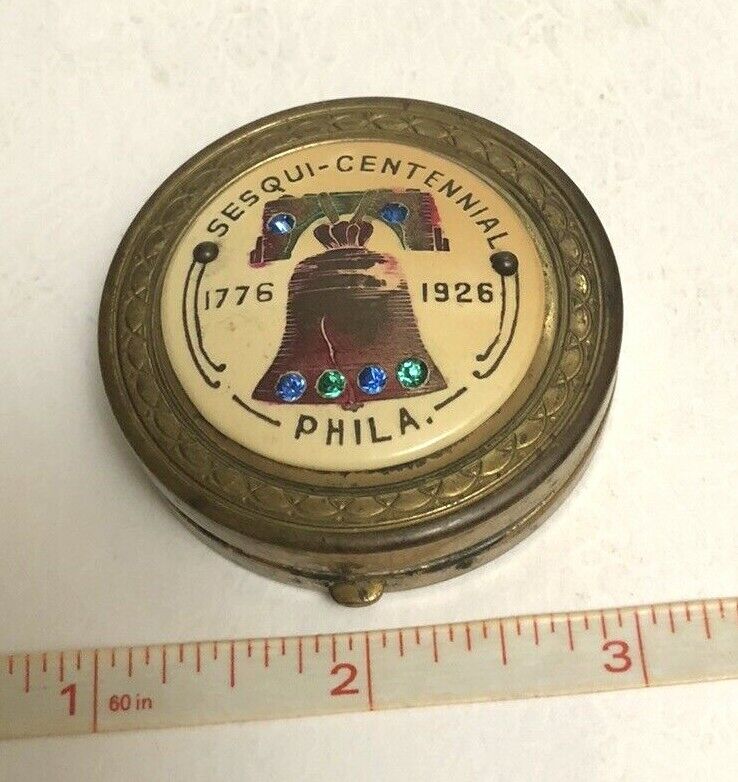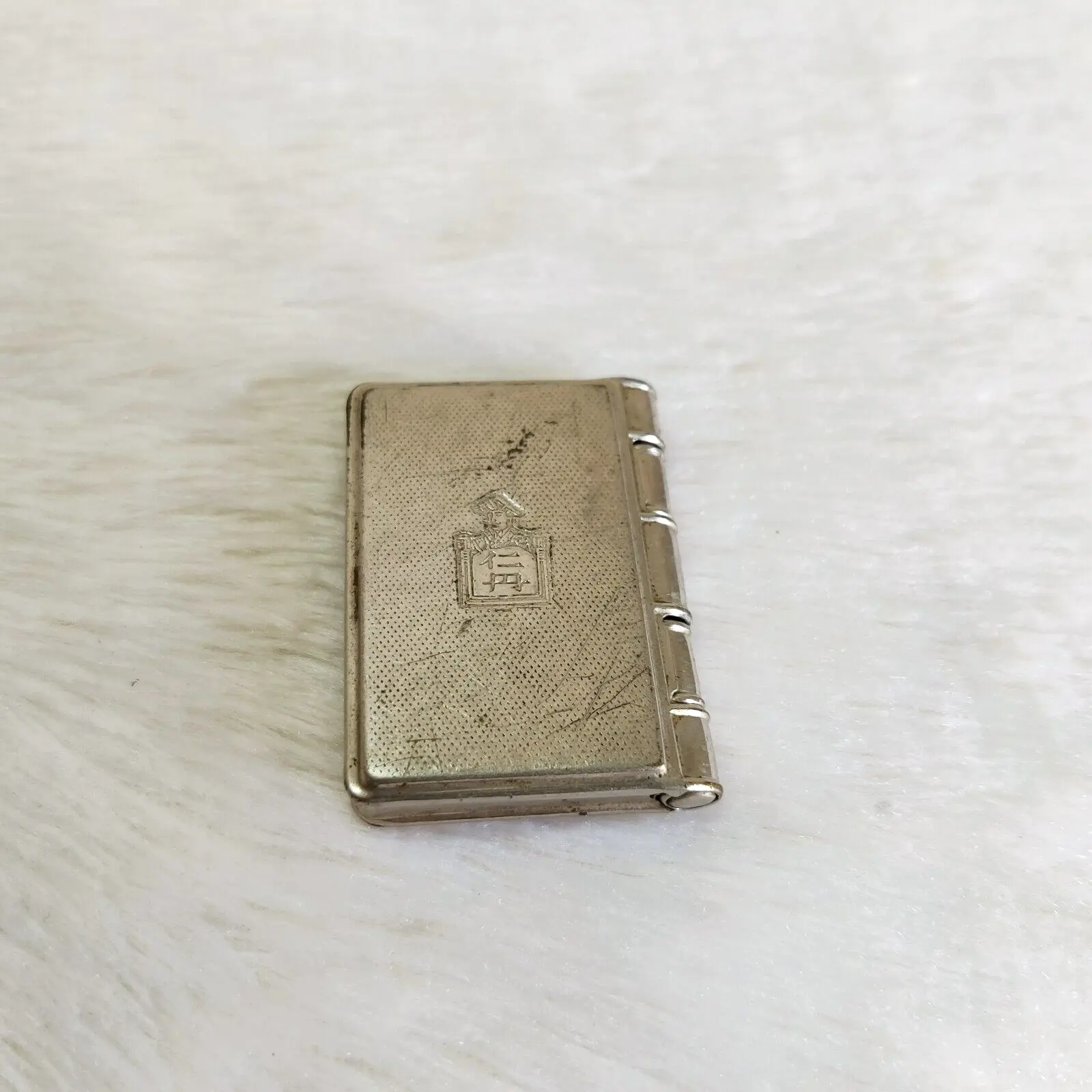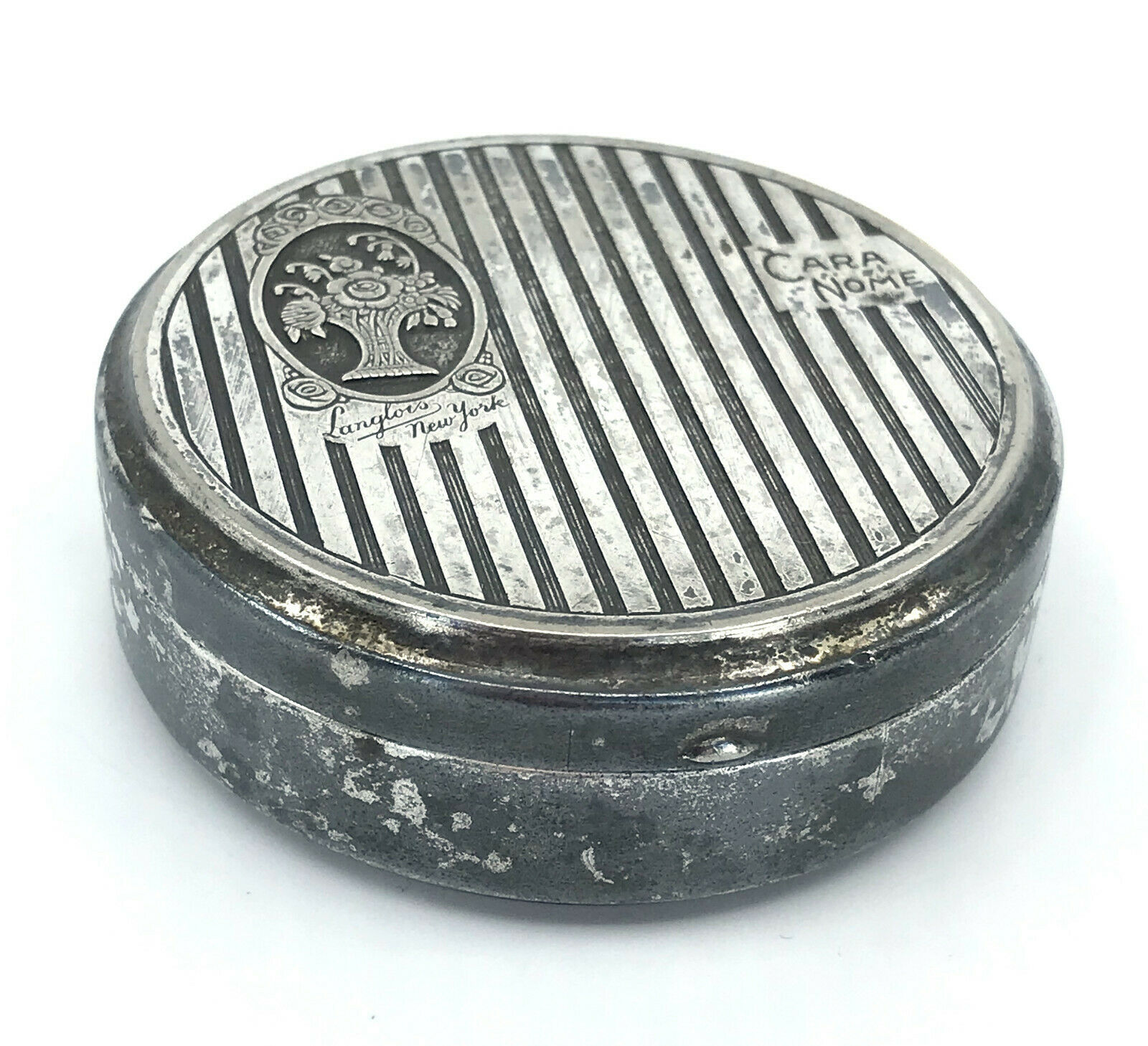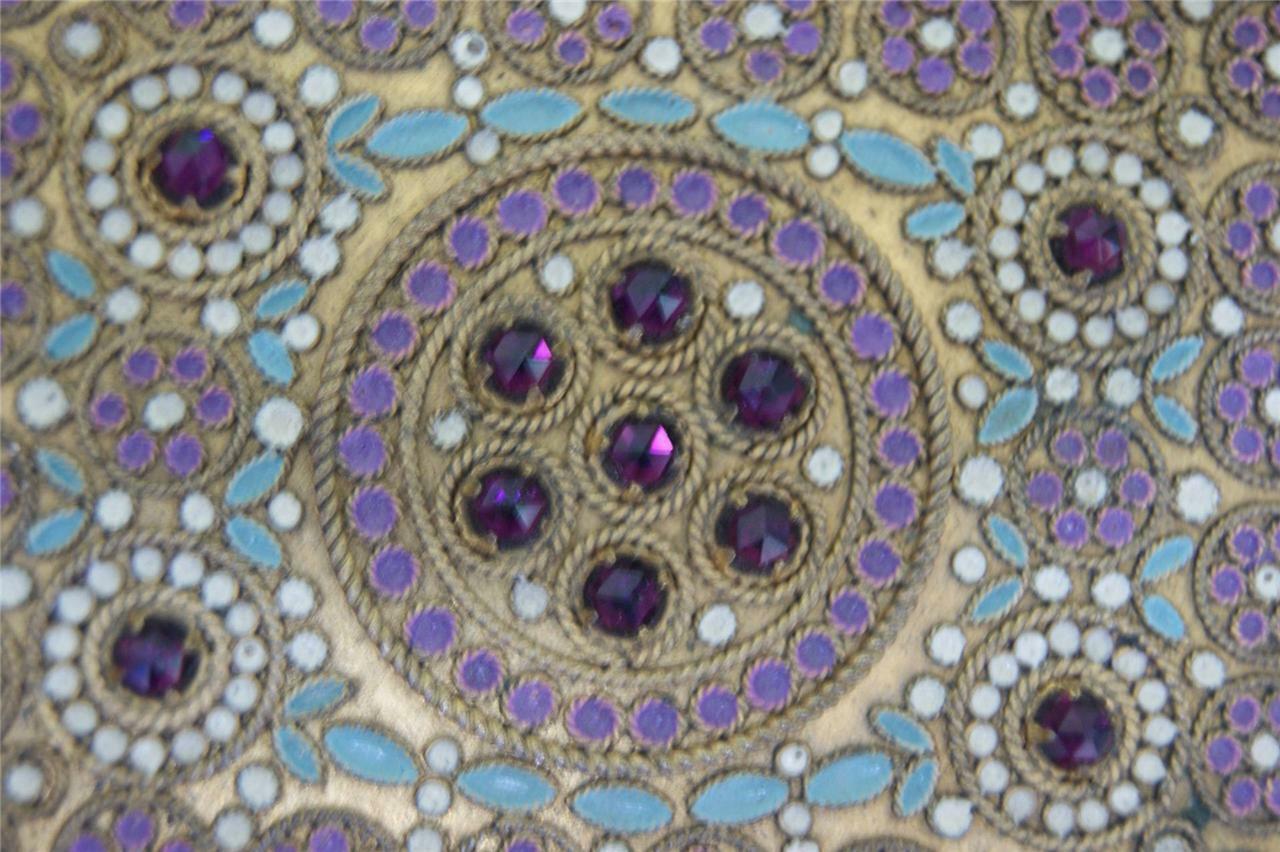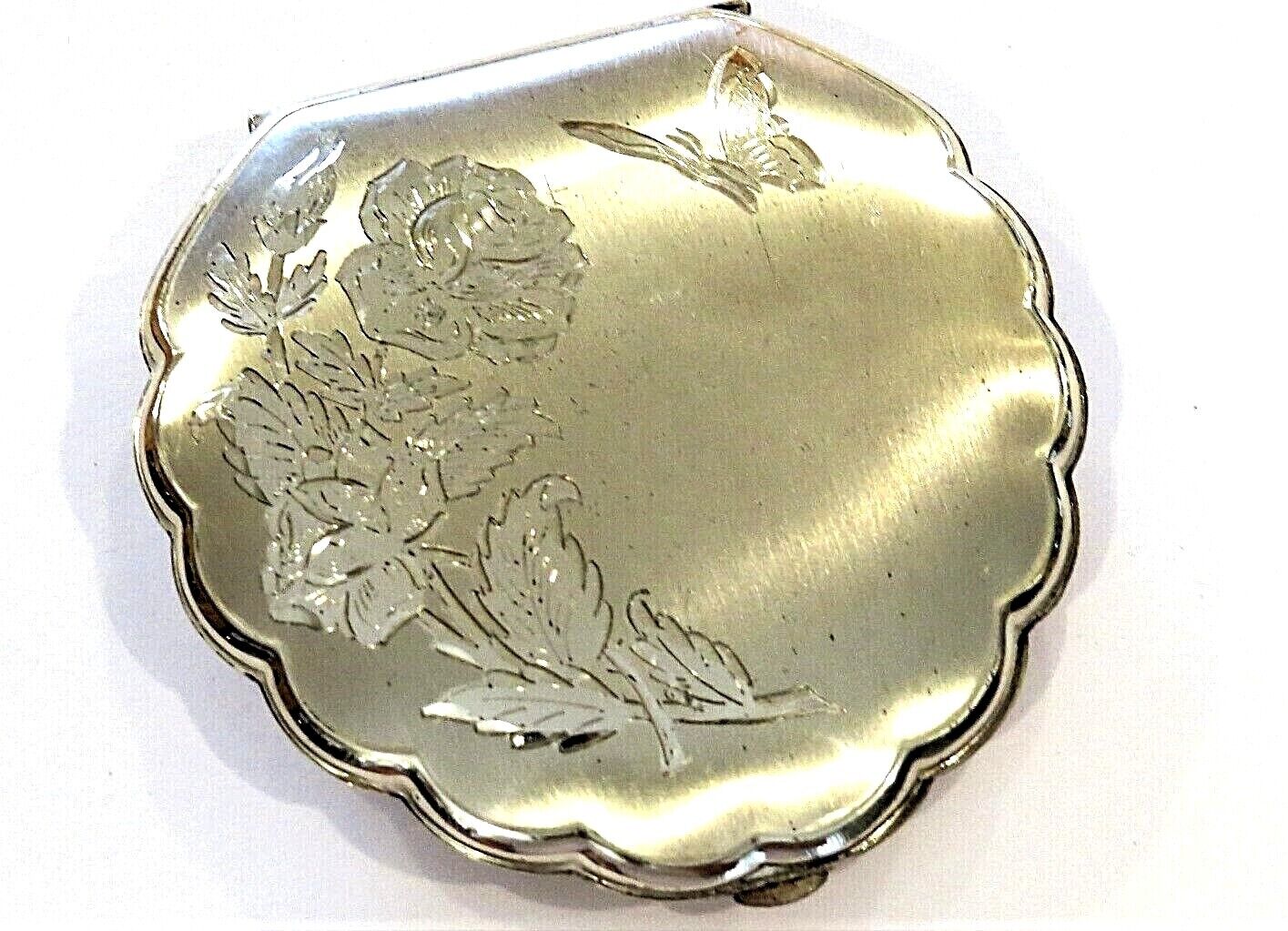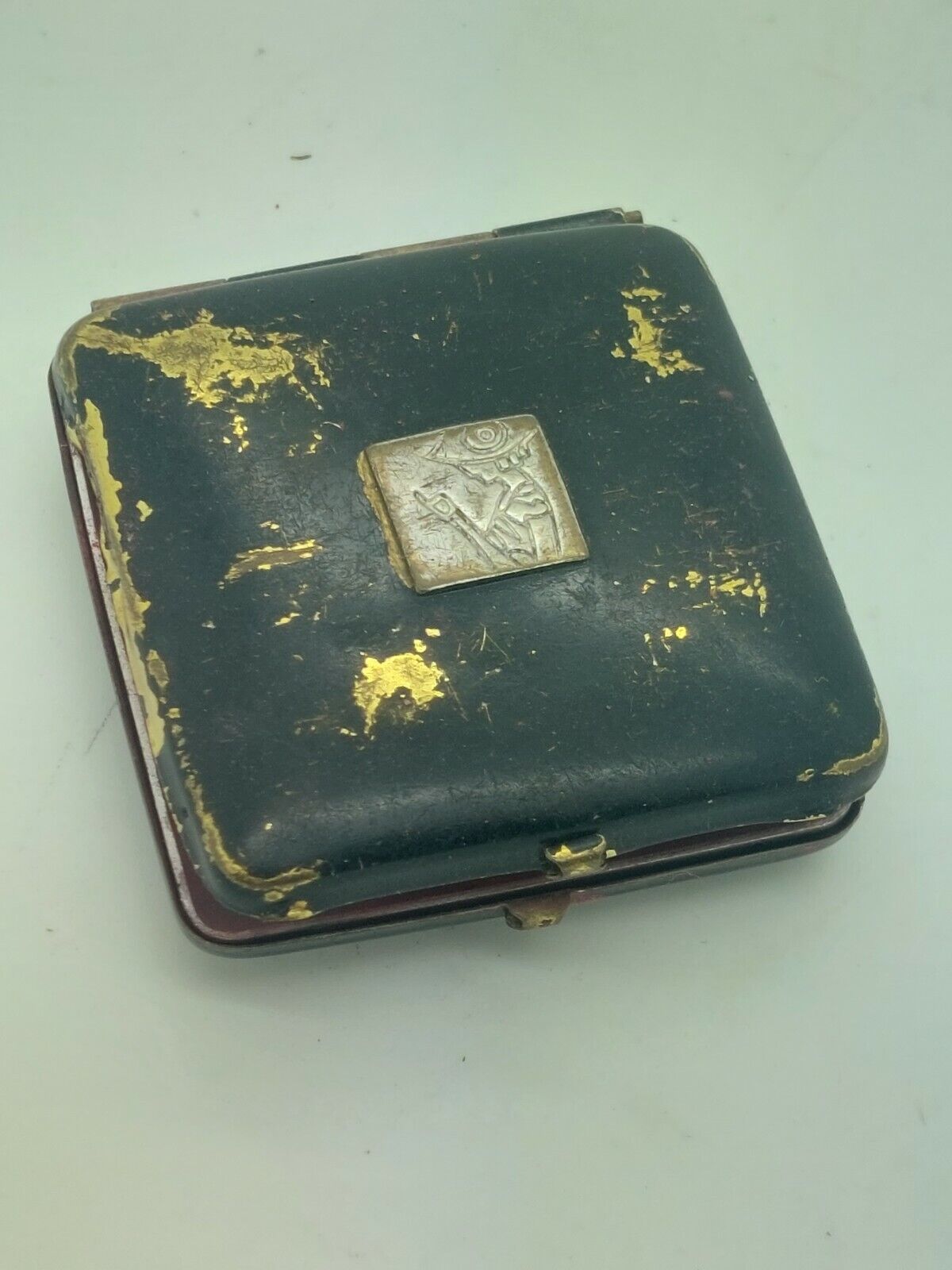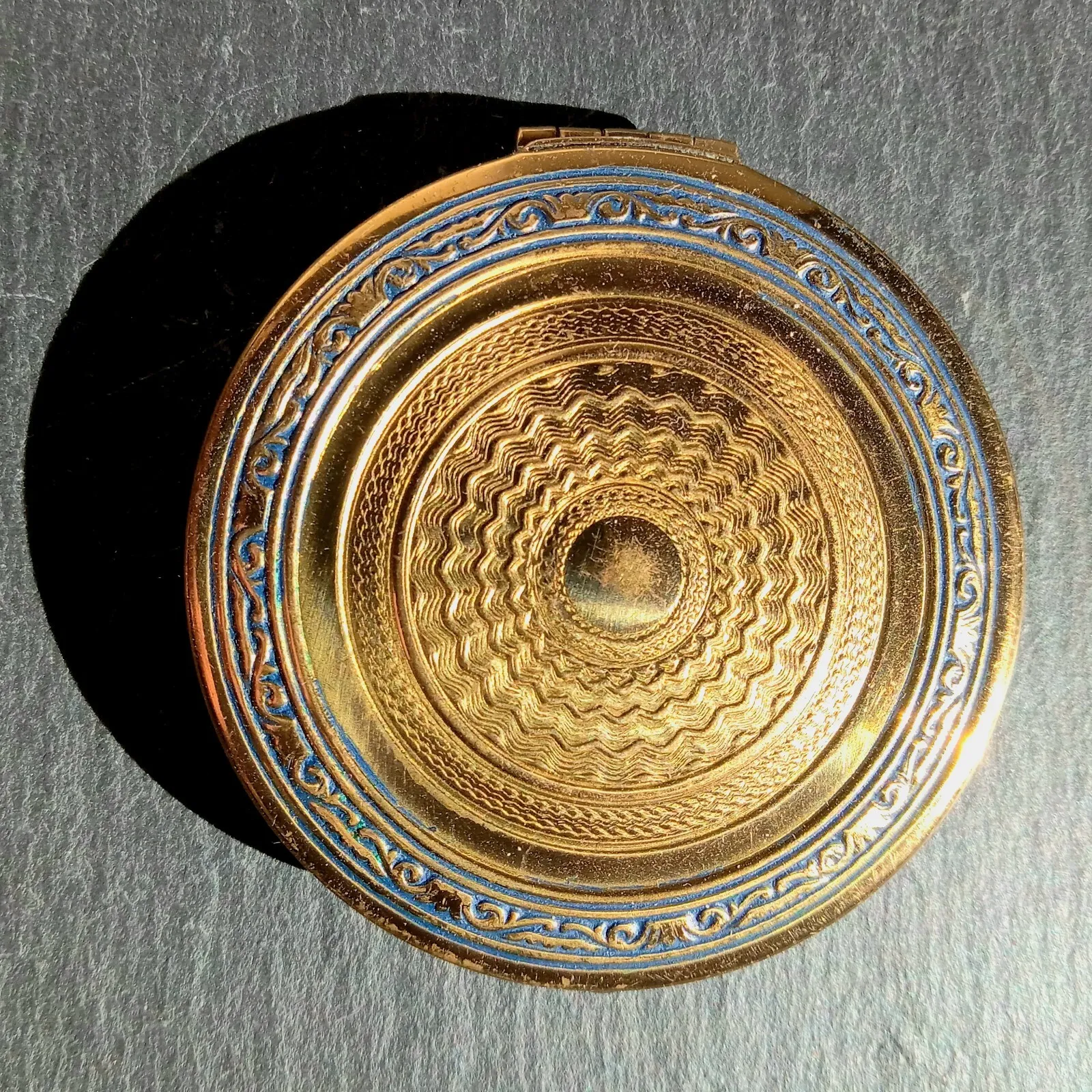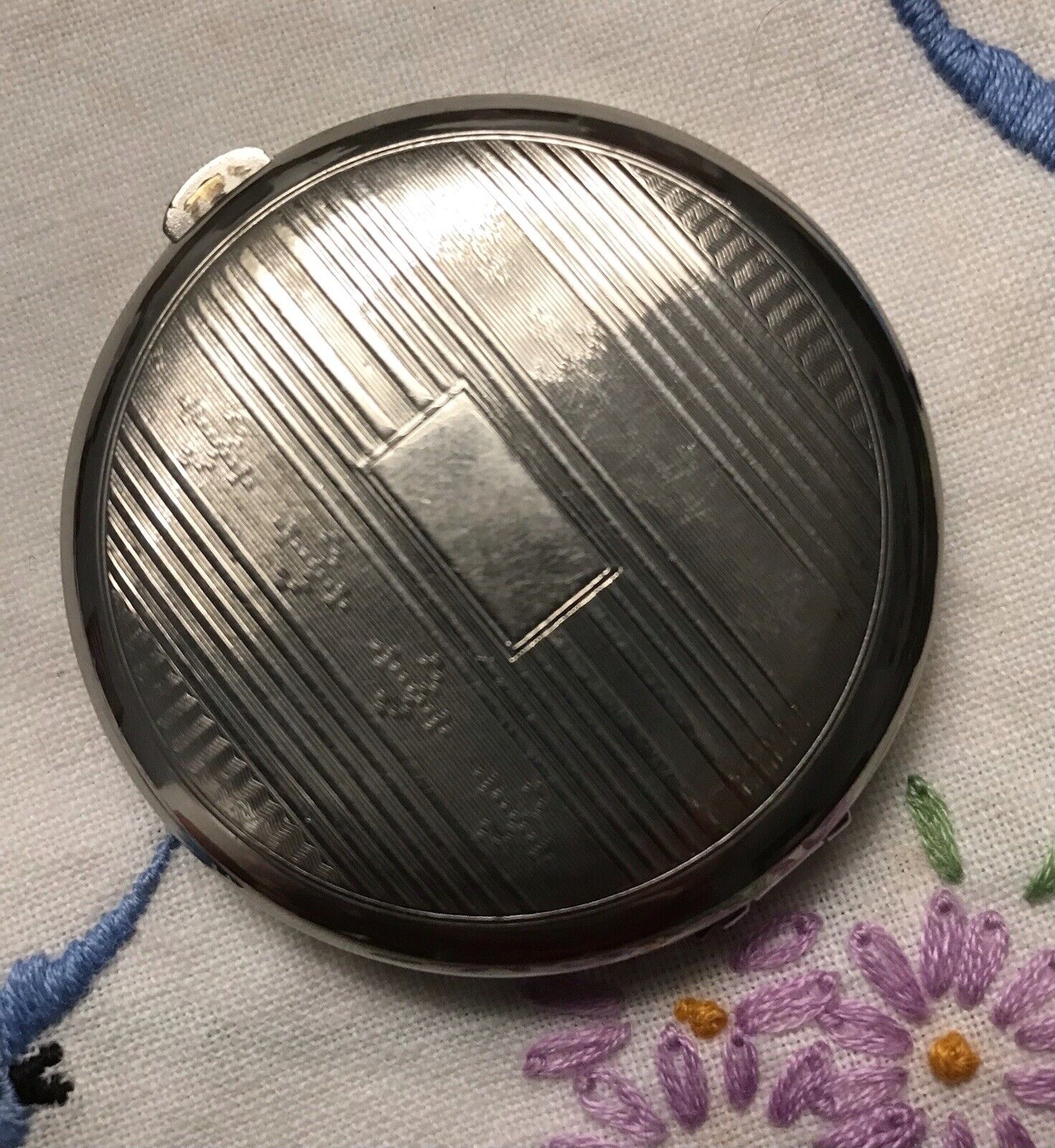-40%
EARLY 1900s Woodbury Blue Enamel Mirrored Compact Engraved “Germ Free” Antique
$ 15.31
- Description
- Size Guide
Description
Another Great for Collectors Collection or Movie Set PropEARLY 1900s Woodbury Blue Enamel GERM FREE COMPACT Engraved on Back Reads REG US PAT OFF JOHN H WOODBURY INC Cincinnati Ohio Germ Proof Burgundy
Almost Antique NICE hard to date I’m guessing 1930s but The Pattern Engraved on the back Dates Earlier of 1900s You Decide Read Above
A Little History
1870, dermatologist John H. Woodbury founded the company in Albany, New York. Woodbury Soap Company began with a facial soap that promised to be "a remedy for eczema, scald , etc." In 1901, the growing Andrew Jergens Company purchased the business and relocated it to Cincinnati, Ohio. Other products like talcum powder, face powder, cold cream, and ear swabs soon followed.
In the early 1900s, Woodbury became known for its risqué slogans and advertisements. Woodbury's slogan "A Skin You Love to Touch," first used in 1911, was such a scandalous hit that it remained the company's slogan well into the 1940s. In 1936, Woodbury was one of the first businesses in American to use nude women in their print advertisements.
Between the 1930s and 1940s, the personal care giant enlisted prominent female movie stars to sell their cosmetics and toiletries lines. Lucille Ball, Linda Darnell, Judy Garland, and Elizabeth Taylor were among those who marketed Woodbury powder compacts and bright lipsticks. The brand also sponsored radio programs starring Bing Crosby and Bob Hope.
Woodbury Soap's popularity gradually waned after the 1940s. The company shuttered in the 1970s when another business acquired Andrew Jergens Company.
